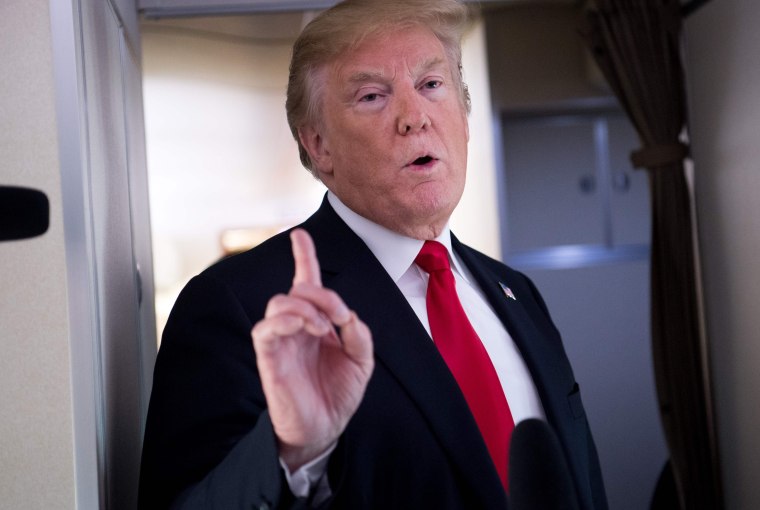At the United Nations last week, Donald Trump put his signature on a new trade deal, alongside South Korea's Moon Jae-in. "I'm very excited about our new trade agreement," the American president said. "And this is a brand-new agreement. This is not an old one, rewritten. This is a brand-new agreement."
Wrong. This may have been Trump's first meaningful trade deal, so it stands to reason he'd be a little excited, but the original KORUS agreement was reached in 2012 under the Obama administration, and the current Republican administration really just revised some provisions. When Trump said he wasn't just amending the previous deal, he had it largely backwards.
A New York Times report explained last week that the revised trade deal features "few fundamental changes to the existing agreement," adding that analysts believe "the revised agreement includes few provisions that will appreciably change the trade balance between the two countries, which Mr. Trump has complained about."
All of this came to mind yesterday when the American president touted a new NAFTA-but-we're-not-supposed-to-call-it-that agreement. "It's a brand-new deal," Trump said yesterday. "It's not NAFTA redone; it's a brand-new deal."
It's really not. As the Washington Post's Catherine Rampell explained:
[F]or the most part, despite Trump's assertion that "it's not NAFTA redone, it's a brand-new deal," the president mostly kept NAFTA intact.What's more, some of the more significant changes -- relating to issues such as labor standards, environmental protections and e-commerce -- appear to be cribbed from another trade deal that Trump has demonized: the Trans-Pacific Partnership.
Exactly. The Trump administration condemned NAFTA, struggled to explain what it was about NAFTA the president didn't like, and then managed to tweak it a little.
The most significant revisions mirror the provisions the Obama administration negotiated during the TPP talks a couple of years ago.
Follow the series of events:
1. Trump condemned NAFTA, despite not appearing to know any relevant details about NAFTA.
2. Trump condemned the TPP, despite not appearing to know any relevant details about it, either.
3. Trump killed the TPP and demanded negotiations to revise NAFTA.
4. Trump settled on an agreement that, as Rampell put it, is "mostly just a smooshing together of two trade deals that he derided as the worst trade deals ever made."
Kevin Drum derided the new NAFTA as "one of the most trivial trade agreements ever."
So why bother? In part because Trump was obsessed with giving NAFTA a new name -- it's supposed to be called USMCA, which is unpronounceable, and which is at odds with the published text of the agreement, which uses "NAFTA 2018" -- and in part because this president likes to be seen doing stuff.
The goal is to create a talking point, not a policy. Trump will spend the next couple of years insisting that he shredded NAFTA and replaced it with a "historic" triumph, and we'll be expected to believe this, even though it's plainly at odds with what actually happened.
